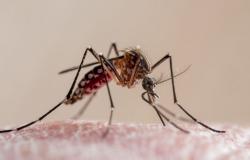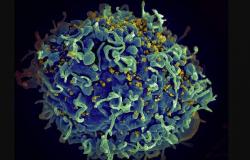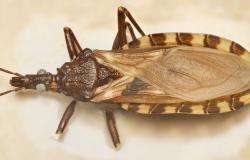Following an adequate diet is essential for patients before and after the procedure. bariatric surgery.
According to Alexandra Corrêa de Freitas, nutritionist and professor of the Nutrition course at Faculdade Santa Marcelina, before the procedure, the assistance of a nutritionist is necessary to begin a process of nutritional education, sensitization, awareness and assistance to the patient regarding the patient’s needs. of changes in eating behavior. “These points will be part of your new habits and will contribute to controlling comorbidities associated with obesity, as well as starting to lose or control weight before the procedure, reducing surgical risk,” she says.
It is also at this stage that the professional must pay attention to the presence or risk of developing eating disorders, in addition to guiding the patient about the real expectations with weight loss and starting to prepare the individual about the phases of eating after surgery.
“After surgery, the nutritionist will help guide the consistency and volume of the diet, as well as the gradual evolution of the diet”, points out Corrêa. And he continues: “Nutritional education continues to be developed with the patient, seeking to encourage the consumption of foods of good nutritional quality and guiding those that should be avoided either because of their low nutritional value or because they are not yet permitted, despite the desire to consume them. them.”
Nutritional guidelines in the immediate postoperative period of bariatric surgery
The main guidelines, according to the nutritionist, are focused on the volume to be ingested, portioning of meals, food consistency and which foods should be excluded.
“This post-operative care is very important for dietary adaptation and adequate healing of the stomach and intestine associated with the prevention of side effects and post-surgical complications, such as: nausea, vomiting, dumping and suture dehiscence.”
Continues after advertising
Another important point post-surgery concerns the evaluation and prescription of protein supplementation, when necessary, in addition to vitamins and minerals.
What diet should a patient follow after bariatric surgery?
“Currently, it is recommended to introduce the diet early, that is, within the first 24 hours after the surgical procedure. This release is made by the doctor. Then start feeding with a liquid consistency, light color and low sugar and fat content, offering 50 ml every 30 minutes”, points out Corrêa.
According to him, the progression of the consistency and characteristics of the diet may vary according to individual tolerance and the characteristics of the surgical technique, and must be evaluated by the multidisciplinary team responsible for the patient’s care.
“Throughout the entire evolutionary process of the diet, there must be attention and concern about the foods that need to be present, those that are not allowed and attention to total volume, fractionation and consistency. In the first few days of a liquid diet, powdered nutritional supplements should be prescribed, seeking to avoid nutritional deficiencies.”
What foods to avoid?
Individuals undergoing surgical treatment for obesity should pay special attention and avoid consuming sugar, as well as sweets in general, sugary drinks (artificial juices and soft drinks) and other foods that contain sugar, as they can promote the occurrence of the so-called Dumping Syndrome. (symptoms caused by the rapid passage of foods with high concentrations of fat and/or sugars from the stomach to the intestine).
“Around 40% of people who undergo bariatric surgery report having Dumping Syndrome, which can occur 1 hour after a meal, with symptoms such as abdominal pain, borborygmus (stomach noise), diarrhea, nausea, fatigue, palpitations, tachycardia and hypotension or , it can occur later, up to 3 hours after a meal, with symptoms such as fatigue, weakness, confusion, hunger, syncope, sweating, palpitations, tremors and irritability”, explains the professional.
Continues after advertising
“In addition to foods rich in sugar, alcoholic beverages and those containing caffeine should also be avoided, especially during the liquid diet period, but it is recommended not to include these foods routinely in the diet, even in later stages”, he adds.
Finally, another important precaution concerns fluid intake. It is recommended to avoid artificial juices and soft drinks due to their high sugar content and low nutritional value, however, even water and natural juices should be ingested with caution, recommending consumption 30 minutes before or after meals, but never together with foods.
Post-bariatric nutritional supplementation
Post-bariatric surgery supplementation is mandatory and necessary. This is because, as a result of the surgical procedure, gastric volume is restricted, leading to a reduction in the size of portions consumed and/or a reduction in the intake of some foods due to lower tolerance and the occurrence of gastrointestinal symptoms. Furthermore, secondary malabsorption occurs due to a decrease in the absorption area in the small intestine, where nutrients are absorbed.
The most common nutritional deficiencies observed in the postoperative period are:
- Protein;
- Iron;
- Zinc;
- Calcium;
- Vitamin D;
- Complex B vitamins.
“Therefore, supplementation is a permanent indication and the periodic evaluation of these nutrients and others, when necessary, should be part of the nutritional monitoring of people who have undergone bariatric surgery”, concludes Alexandra Corrêa de Freitas.






